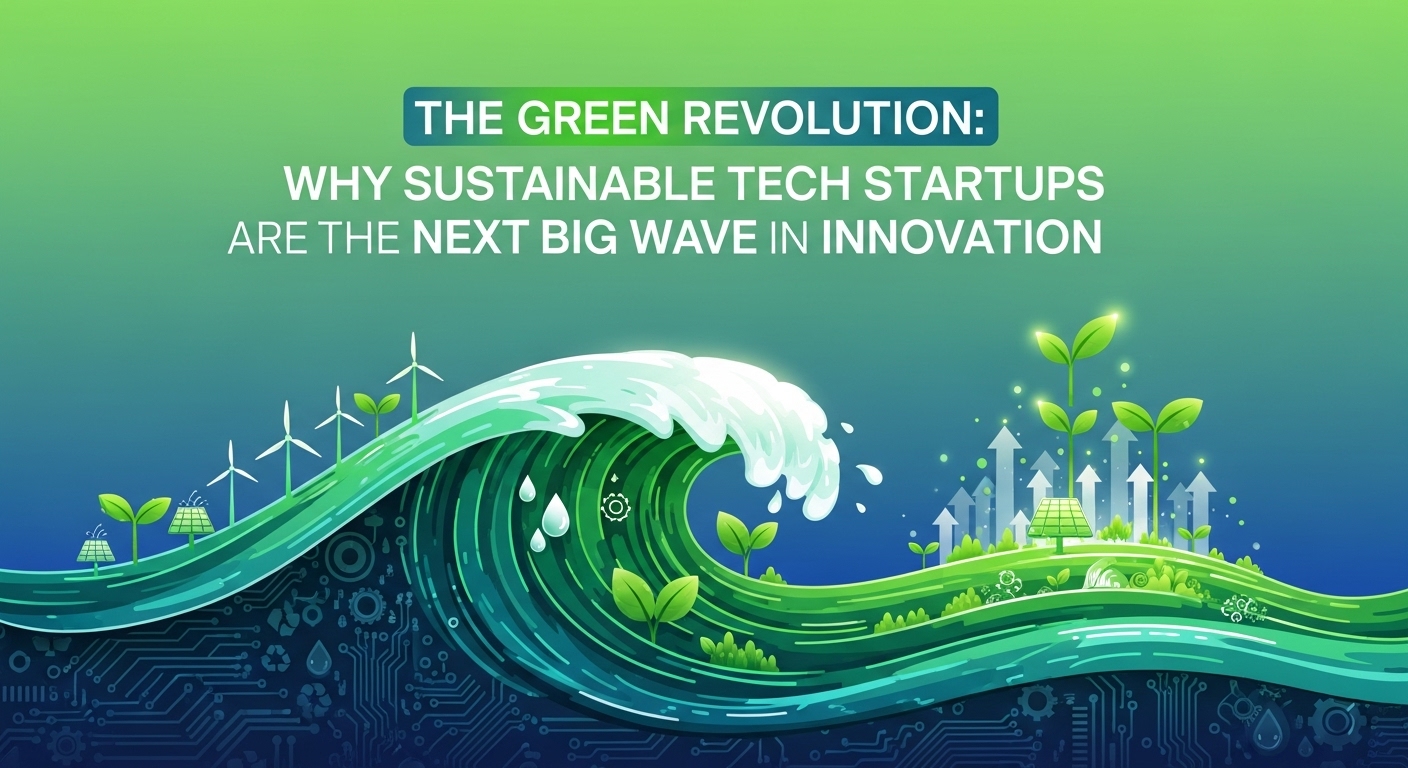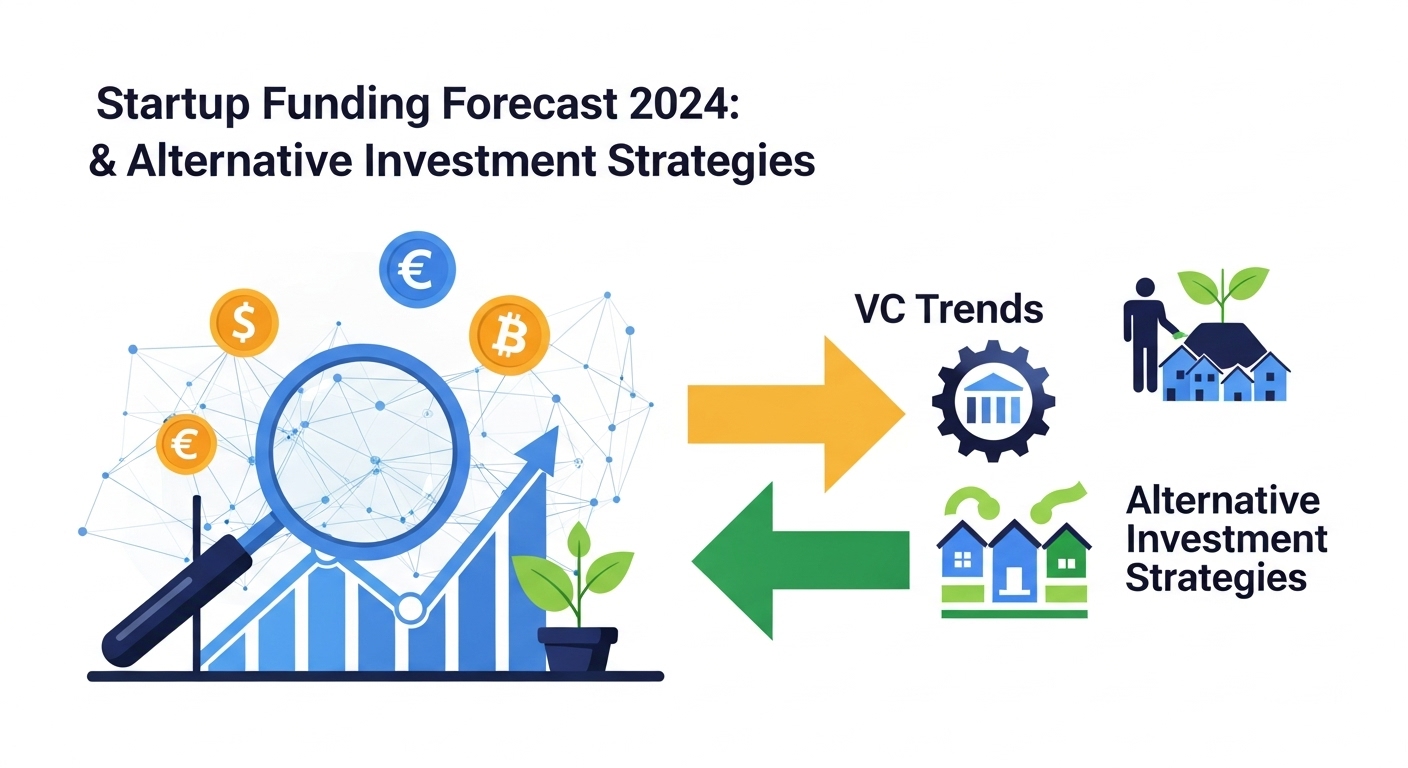The Dawn of a New Industrial Era: The Green Revolution 2.0
We stand at a pivotal moment in human history. The digital revolution transformed how we live, work, and connect. Now, a new, even more profound transformation is underway—a Green Revolution powered by technology. This isn’t just about planting more trees or recycling; it’s a fundamental reimagining of our industries, economies, and societies through the lens of sustainability. At the heart of this movement are a new breed of entrepreneurs and visionaries: the leaders of sustainable tech startups. They are proving that profit and purpose are not mutually exclusive and that the greatest opportunities for tech startups & innovation lie in solving our planet’s most pressing challenges.
For decades, the narrative of progress was often at odds with environmental health. Industrial growth meant pollution, and technological advancement often came with a hefty carbon price tag. But that paradigm is crumbling. Today, the most exciting frontiers in technology are not just about making things faster or more convenient, but about making them smarter, cleaner, and more efficient. This is the new wave, and it’s poised to be bigger than the internet boom. Why? Because it addresses a universal, non-negotiable need: the long-term viability of our planet.
Understanding the Core of Sustainable Tech
So, what exactly do we mean by ‘sustainable tech’ or ‘cleantech’? It’s a broad term encompassing any technology, product, or service that is environmentally friendly or seeks to reduce negative environmental impacts. It’s about using innovation to decouple economic growth from resource depletion and environmental degradation. The philosophy behind it is built on several key pillars.
The Principles of Green Innovation
- The Circular Economy: This is a direct challenge to the traditional ‘take-make-dispose’ linear model. Sustainable tech startups are creating systems where resources are kept in use for as long as possible, extracting the maximum value from them whilst in use, then recovering and regenerating products and materials at the end of each service life. Think of companies creating biodegradable packaging from mushrooms or platforms that facilitate the repair and resale of electronics.
- Decarbonization and Renewable Energy: This is perhaps the most visible aspect of sustainable tech. It involves developing and deploying technologies that reduce our reliance on fossil fuels. This includes advancements in solar panels, wind turbines, geothermal energy, and, crucially, energy storage solutions like next-generation batteries that solve the intermittency problem of renewables.
- Resource Efficiency: At its core, this is about doing more with less. Tech startups & innovation in this area focus on reducing the consumption of water, energy, and raw materials across all industries. This could be an AI-powered platform for precision agriculture that minimizes water usage or smart building technology that drastically cuts energy consumption.
- Conservation and Restoration: Technology is also being used to protect and restore our natural ecosystems. This includes satellite monitoring to prevent deforestation, drone technology for reforestation projects, and advanced sensors to combat ocean pollution.
The Powerful Forces Fueling the Green Wave
This surge in sustainable tech isn’t happening in a vacuum. A powerful confluence of economic, social, and political factors is creating the perfect storm for this revolution. These are not fleeting trends; they are deep, structural shifts that are redefining market dynamics.
A Paradigm Shift in Consumer Consciousness
Modern consumers, particularly Millennials and Gen Z, are more informed and value-driven than any generation before them. They demand transparency and are increasingly choosing to support brands that align with their ethical and environmental values. This ‘conscious consumerism’ is forcing companies across all sectors to rethink their supply chains, products, and carbon footprints. Startups that are born with sustainability in their DNA have a massive competitive advantage in capturing the loyalty of this growing market segment.
The Rise of ESG and Investor Demand
The financial world has woken up. Environmental, Social, and Governance (ESG) criteria are no longer a niche consideration for investors; they are a mainstream strategy for assessing risk and long-term viability. Venture capitalists, private equity firms, and even public markets are pouring unprecedented amounts of capital into sustainable tech startups. They recognize that companies solving climate change are not just ‘doing good’—they are tapping into multi-trillion-dollar markets and building the resilient, future-proof businesses of tomorrow.
Regulatory Tailwinds and Global Commitments
Governments worldwide are implementing policies to accelerate the transition to a low-carbon economy. From the Paris Agreement to national carbon pricing schemes, green subsidies, and stricter environmental regulations, the message is clear: the cost of polluting is going up, and the rewards for innovating sustainably are increasing. This regulatory landscape creates a stable, predictable market for green technologies, de-risking investment and encouraging more tech startups & innovation in the space.
Hotbeds of Sustainable Innovation: Where the Action Is
The green revolution is not confined to one sector. It’s a cross-industry phenomenon, creating exciting opportunities for disruption and growth. Let’s look at some of the most dynamic areas.
Energy: Powering the Future
The energy sector is ground zero for decarbonization. Startups are innovating in areas like decentralized energy grids (microgrids), advanced battery storage to make renewables reliable 24/7, green hydrogen production, and even novel technologies like nuclear fusion. They are challenging the centralized, fossil-fuel-based models that have dominated for over a century.
Mobility and Transportation
The shift to electric vehicles (EVs) is just the beginning. The future of mobility is electric, autonomous, and shared. Startups are working on everything from more efficient battery technology and widespread charging infrastructure to software platforms for optimizing delivery routes and public transport systems, all aimed at reducing the massive carbon footprint of transportation.
AgriTech and Food Systems
Our global food system is a major contributor to greenhouse gas emissions and resource depletion. Sustainable AgriTech startups are tackling this head-on with solutions like vertical farming, precision agriculture that uses AI and IoT to optimize water and fertilizer use, and the development of alternative proteins (plant-based and cultivated meat) that require a fraction of the land and water of traditional livestock farming.
The Circular Economy and Waste
From fashion to electronics to packaging, our consumption habits have created a global waste crisis. A new wave of startups is turning this problem into an opportunity. They are developing new materials that are biodegradable or infinitely recyclable, creating platforms for the ‘sharing economy’ to reduce the need for ownership, and using advanced robotics and AI to revolutionize recycling processes.
Navigating the Challenges on the Green Frontier
While the opportunity is immense, the path for sustainable tech startups is not without its obstacles. These ventures often deal with ‘hard tech’—physical products and infrastructure—which can require more capital and longer development cycles than software startups. Scaling up manufacturing can be a significant hurdle, as can navigating complex regulatory environments. Furthermore, they must compete with entrenched, heavily subsidized legacy industries. However, the tailwinds of consumer demand, investor interest, and policy support are stronger than ever, helping these pioneering companies overcome the initial friction and reach commercial viability.
Conclusion: Your Role in the Next Great Innovation Wave
The green revolution is more than just a trend; it is the next major economic and technological paradigm. The intersection of purpose and profit has never been more aligned. The challenges of climate change, resource scarcity, and environmental degradation are the greatest innovation opportunities of our lifetime. For entrepreneurs, it’s a chance to build world-changing companies that solve fundamental problems. For investors, it’s an opportunity to fund the future and generate immense returns. For all of us, it’s a chance to support and participate in building a cleaner, more resilient, and more equitable world.
The question is no longer *if* sustainable tech will be the next big thing, but *who* will be the leaders that define it. The wave is building, and now is the time to dive in. Whether you’re an innovator with an idea, an investor looking for the next unicorn, or a consumer making conscious choices, you have a role to play in this critical chapter of tech startups & innovation.


